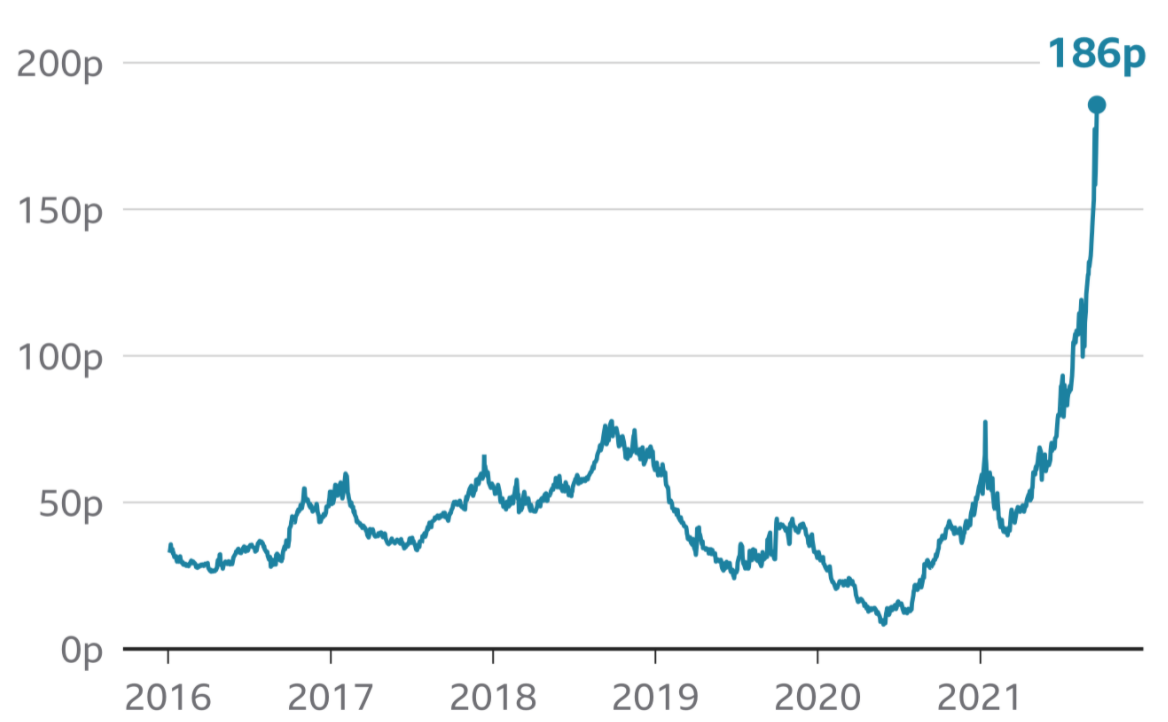What You Need To Know About The Energy Crisis
At the start of 2021, there were over 70 energy providers in the UK. Since then, nine have gone bust or stopped trading whilst others struggle to keep afloat. This includes Enstroga, Igloo Energy, Money Plus and Utility Point. Industry experts forecast there may only be ten providers by the end of the year as the U.K. transitions into winter.
Why are energy companies going bust??
A simple way to visualise the energy market is to imagine there are two groups of people. Group (A) represents energy producers who extract oil, gas… and transform it; and group (B) represents retail energy providers that sell and distribute these products to our doors.
Energy is a volatile commodity traded on a daily basis in the financial market, its price varies based on the supply (from A) and the demand (from B).
As consumers, we don’t see this volatility because we buy our energy at a fixed price from our providers. So the providers sell to us at fixed prices but supply themselves at a price that can change every second. Therefore, energy providers make money when the market price of energy decreases and lose money when it increases.
So far nothing new, the energy market has always worked that way. So why are prices going through the roof?

Source: Bloomberg
Because of an excessive imbalance between supply and demand:
Decreased supply
The production of natural gas and crude oil has decreased in 2021 for many reasons:
- The production of energy far exceeded the demand in 2020 due to Covid-19;
- Some energy companies came close to bankruptcy and couldn’t afford to properly maintain their infrastructure. Now they can’t meet demand;
- There are geopolitical tensions between Russia and Ukraine;
- Other energy producers make a lot of money by keeping limited production and high prices.
Increased demand
After nearly a year spent in lockdown, the world is waking up and returning to its usual energy consumption. Furthermore, meteorologists are predicting a particularly cold winter.
Why is the UK affected so badly?
To put things into perspective, whilst gas prices may be rising all across Europe, the U.K. is particularly at risk because the UK is a net importer of energy and one of Europe’s biggest natural gas consumers. Approximately 85% of homes in the UK use gas central heating and gas generates one-third of the country’s electricity.
Besides that, the recent fire tragedy at a National Grid site in Kent, unfortunately, shut down a power cable that supplied electricity from France. Furthermore, due to reduced wind power generated over the least windy summer since 1961, supplies of renewable energy have dropped.
What should I do?
If you are on a standard tariff, your prices will increase by approximately 12%. This is because the energy price cap was increased on October 1st. You could be facing an increase of £139 from £1,138 to £1,277 annually. Of course, if your household has a larger than average energy usage, you will pay more than £1,277.
If you have a prepayment meter, you may see an increase of £153 from £1,156 to £1,309.
If you are on a fixed tariff plan, you will not be affected by the energy price cap. However, if you are coming to the end of a contract, you will be automatically moved to a default tariff set at the new level.
If you are looking for price security and fear the rise in the price cap in the future, a fixed deal is what would be best for you. These deals are often 12 months long and protect you from further price increases in the period of your energy contract.
At the moment, price-capped tariffs are the cheapest deals sold by some suppliers. However, this may increase in six months when the price cap is reviewed.
Will my energy supplier go bust?
The following is a list of the energy providers that have stop trading or have gone bust (as of October 1st):
- Igloo Energy
- Avro Energy
- MoneyPlus Energy
- People’s Energy
- PFP Energy
- Symbio Energy
- Utility Point
- Enstroga
- Green Supplier Ltd
If an energy provider goes out of business, the Office of Gas and Electricity Markets (Ofgem) chooses a new supplier to take on their customers. The new supplier is obligated to honour any credit you may have and you will be moved across within a couple of weeks. Once this transition is complete, you are then able to switch to a preferred supplier if you want to do so.
What do I do if my energy supplier goes out of business?
If your supplier closes, you should do the following:
Step 1: Take a meter reading
Step 2: Do not switch on your own
Step 3: Wait for Ofgem to choose your new supplier
Step 4: Wait to be contacted by the new supplier
I hope you find this information helpful! Remember, if you haven’t already, it’s time to start saving for an emergency fund. Download Nova now to prioritise your financial goals, improve your financial habits and complete them in line with your capabilities.
You can protect yourself from the rising gas prices and cold winter by building your emergency fund and for your Christmas gifts.

Set your goals with Nova and you will be prepared for extreme or unexpected events in your life.
Whatever the goal, Nova’s got you covered in times of uncertainty.






